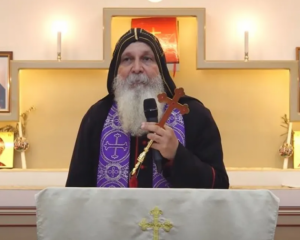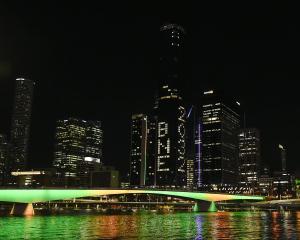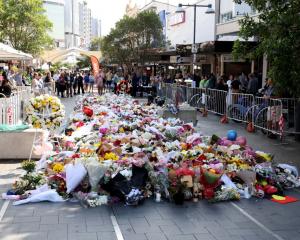While slavery is assumed to be an issue from a bygone era, an Andrew Forrest-founded foundation estimates 3000 people are enslaved through debt bondage or the like in Australia.
According to Walk Free Foundation's second Global Slavery Index, two-thirds of the 35.8 million people living in "modern slavery" around the world are in Asia, mainly in India, China and Pakistan.
They're trapped in forced or servile marriages, commercial sexual exploitation or bonded labour in industries such as construction, agriculture and garment manufacturing.
Unsurprisingly, the rates are lowest in highly developed nations like Australia and New Zealand.
But in many ways, the fact such exploitation is occurring in advanced economies is even more shocking.
This year, illegal workers were discovered living in substandard conditions at fruit and vegetable markets at Carabooda in Perth's north.
And earlier this month, a Perth court heard about three Estonian men who allegedly tried to extort thousands of dollars from two of their fellow countrymen who had come to Australia to work as welders, but were forced into a "loan agreement" and had their passports taken.
The jury in that case was unable to reach a verdict, while the market garden case is ongoing.
Jenny Stanger, the national manager of the Freedom Partnership to End Modern Slavery, which runs Australia's only refuge for victims, said modern slavery cases were hard to prosecute.
"A lot of people are being exploited and it's hard to know where that line is," Ms Stanger told AAP.
But that was changing, with new offences legislated last year: forced labour; servitude; and deceptive recruiting for labour or services.
"We hope we'll start to see some of the more grey area cases tried under these new offences," Ms Stanger said.
She said juries often had a hard time putting themselves in the shoes of exploited labourers, citing the case of four professional Filipino boxers who went to Sydney to fight in matches but were instead used as domestic workers.
"You've got to convince probably a middle-class white jury that strong men who should be able to take care of themselves could wind up in a situation where they were completely under the control of someone else - it's hard.
"There are juries who don't believe slavery could happen here.
"People say `well, if that was me, I would have gotten pissed off and walked away'.
"There's a whole other vulnerability factor in keeping these people in that situation."
Walk Free Foundation executive director of global research Fiona David said Australian authorities could do more to understand these complex situations and support victims, who found the legal process highly intimidating.
"There's been a real focus at the federal level on skilling up police and prosecutors. Now we need to see that rolled out through the states and territories because that's where people go to get services," Ms David told AAP.
She said consumers could help by not buying clothes from sweatshops, for instance, and businesses should scrutinise their supply chains.
Mr Forrest last week said his company Fortescue Metals Group had discovered slavery in its supply chain and urged other companies to audit theirs.












